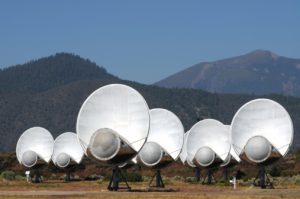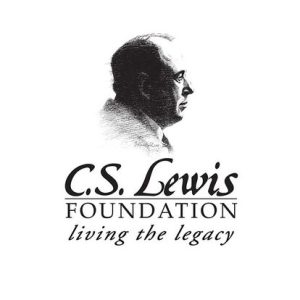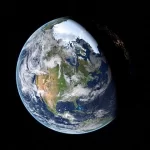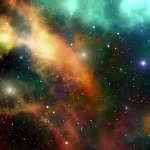
EPISODE SUMMARY:
Is there life beyond Earth? Even more interesting, is there intelligent life beyond the Earth? Where might we go for answers to these questions? What are the implications for our understanding of our place in the universe if aliens exist? What does that reality mean for Christianity? These are all wonderful questions and these will be discussed in this episode of the Eudo Podcast.
EPISODE NOTES:
As the theologian Andrew Davison notes, “More or less continuously since the middle of the fifteen century, Christian theologians have pondered the significance of life elsewhere in the cosmos” [1]. One of the best ways to explore these questions is through science fiction, and of course, Lewis does that quite well.
In this episode we’ll explore the question of extraterrestrial life through the eyes of Ransom as he arrives on Malacandra and to his initial horror and later surprise and then comfort, discovers other races of biological rational creatures. We enter into the story and consider what it would be like, as we gaze over Lewis’s head, to discover intelligent life on another planet.
Ransom will come to find out that there are actually three rational (biological)species on Malacandra. The Hross, the Sorns, and the Pfifltrigg. There is also the angelic beings (the Oyarsa) and the divine being (Maleldil). This raises at least two questions for us: (1) Did God create intelligent alien life? And if so, (2) does the existence of intelligent alien life conflict with Christianity?
Two extreme postures toward the Existence Question: Outright Certainty or Outright Pessimism. In general, however, astronomers and physicists tend to be more optimistic, evolutionary biologist (esp. neo-Darwinian) tend to be pessimistic.
Our Current Reality: We have not discovered Life beyond Earth.
Our Future Hope: We hope to observe ET (and ETI), and we hope to contact ETI. Both are challenging
Why think ETI exist?
- Option #1: Humans are the only rational biological creatures in the universe (there are no ETI)
The main theological support for this idea is that our cosmic significance and value is heightened by being the only rational biological creatures in the universe.
There are three problems with this view for the doctrine of God:
- The problem of waste = if God intended to create humans, doing it without creating other ETI seems to be a great waste of material (given the vastness of the universe).
- The problem of time = if God intended to create humans, doing it without creating other ETI seems to be a great waste of time (given the vast age of the universe).
- The problem of evil = millions of years of (animal) suffering seems pointless if the purpose of the universe is to just bring humans into existence.
- Option #2: Humans are not the only rational biological creatures in the universe (ETI exist).
One sort of a priori theological reasoning that is plausible combines perfect being considerations with the principle of plenitude. The principle of plenitude states that “every possible thing is actual.” Given this Theistic Principle of Plenitude, God is more likely than not to create good things in abundance. Since rational biological organisms are good things, it is more likely than not that God created other races of rational biological organisms (i.e., ETI).
The problems with Option #2 is that the existence of ETI is thought by many to conflict with Christian doctrine, in particular, the doctrines of the fall, incarnation, and atonement. We’ll explore this worry in our next episode.
RESOURCES MENTIONED:
- Andrew Davison, “Christian Systematic Theology and Life Elsewhere in the Universe: A Study in Suitability,” Theology and Science4 (2018)
- Andrew Davison and Jacob Holsinger Sherman, “Christian Platonism and Natural Science,” in Christian Platonism: A History
- Antonio Lazcano and Kevin P. Hand, “Astrobiology: Frontier or Fiction?,” Nature 488:7410 (2012)
- S. Lewis, Out of the Silent Planet
- Andreas Losch & Andreas Krebs, “Implications for the Discovery of Extraterrestrial Life: A Theological Approach,” Theology and Science2 (2015)
- Olli-Pekka Vainio, Cosmology in Theological Perspective: Understanding our Place in the Universe
- David Wilkinson, Science, Religion, and the Search for Extraterrestrial Intelligence

- [1] Andrew Davison, “Christian Systematic Theology and Life Elsewhere in the Universe: A Study in Suitability,” Theology and Science 16.4 (2018): 447.
- [2] C.S. Lewis, Out of the Silent Planet, 38.




